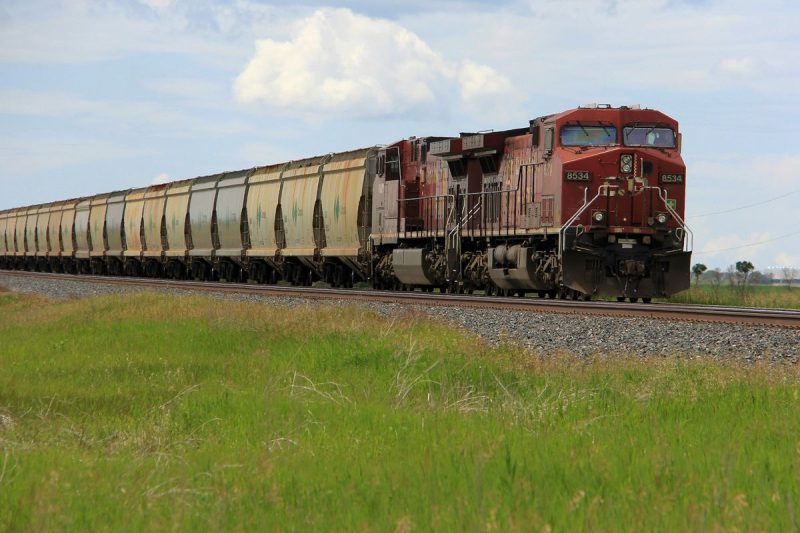
Canadian Rail Workers Lockout Leads to Halting of Potash, Oil, and Metal Shipments
In a recent turn of events, potash, oil, and metal shipments have been halted as Canadian rail workers are locked out. The impact of this labor dispute is being felt across various industries as the disruption in rail transport is causing delays and economic losses.
The lockout of the Canadian rail workers has had a significant impact on the potash industry, which plays a vital role in the agricultural sector. Potash is an essential component in fertilizer production, and any disruption in its supply chain can have far-reaching consequences for farmers and food production. The halt in potash shipments is expected to lead to a shortage in the market, resulting in increased prices and potentially affecting crop yields.
The oil industry is also feeling the effects of the rail workers’ lockout as shipments of crude oil have come to a standstill. Canada relies heavily on rail transport to move its oil to refineries and export terminals, and any disruption in this process can have serious implications for the energy sector. The halt in oil shipments is likely to impact both domestic and international markets, leading to fluctuations in oil prices and potentially affecting global energy supplies.
Furthermore, metal shipments have been disrupted due to the lockout of Canadian rail workers. Metals such as copper, zinc, and nickel are crucial components in various industries, including construction, manufacturing, and electronics. The halt in metal shipments is expected to cause delays in production, impacting supply chains and ultimately affecting businesses that rely on these materials.
The lockout of Canadian rail workers has not only caused disruptions in the transport of potash, oil, and metal shipments but has also highlighted the vulnerability of the country’s rail infrastructure. The reliance on rail transport for the movement of essential goods makes the industry susceptible to labor disputes and other disruptions, underscoring the need for stability and contingency plans to mitigate risks.
In conclusion, the lockout of Canadian rail workers has led to the halt of potash, oil, and metal shipments, causing significant disruptions across various industries. The effects of this labor dispute are being felt in the agricultural, energy, and manufacturing sectors, underscoring the importance of a reliable and resilient rail infrastructure. Moving forward, it is crucial for stakeholders to address the underlying issues and work towards finding a resolution to prevent further disruptions and economic losses.
